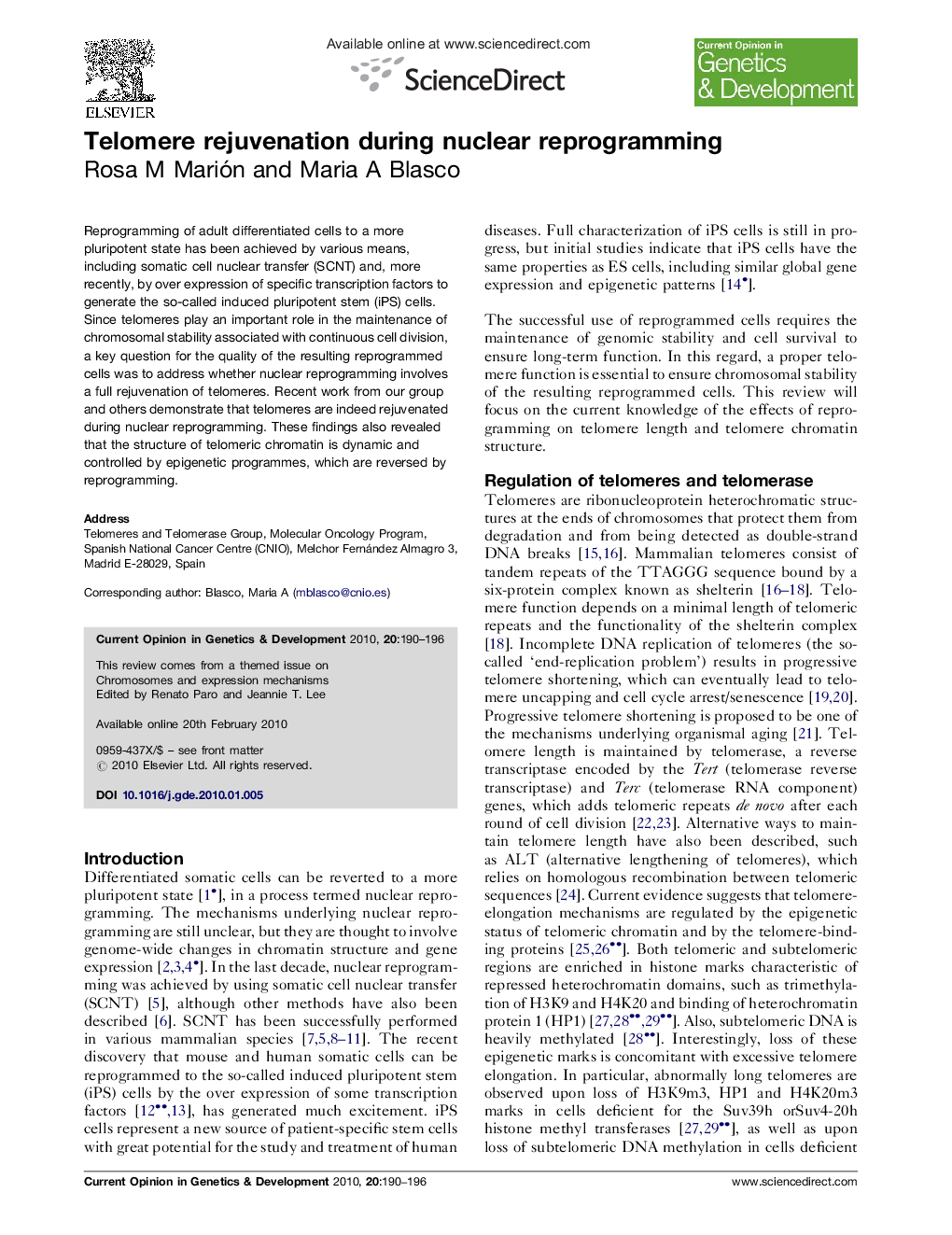| Article ID | Journal | Published Year | Pages | File Type |
|---|---|---|---|---|
| 2785198 | Current Opinion in Genetics & Development | 2010 | 7 Pages |
Reprogramming of adult differentiated cells to a more pluripotent state has been achieved by various means, including somatic cell nuclear transfer (SCNT) and, more recently, by over expression of specific transcription factors to generate the so-called induced pluripotent stem (iPS) cells. Since telomeres play an important role in the maintenance of chromosomal stability associated with continuous cell division, a key question for the quality of the resulting reprogrammed cells was to address whether nuclear reprogramming involves a full rejuvenation of telomeres. Recent work from our group and others demonstrate that telomeres are indeed rejuvenated during nuclear reprogramming. These findings also revealed that the structure of telomeric chromatin is dynamic and controlled by epigenetic programmes, which are reversed by reprogramming.
